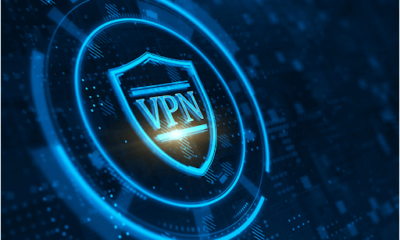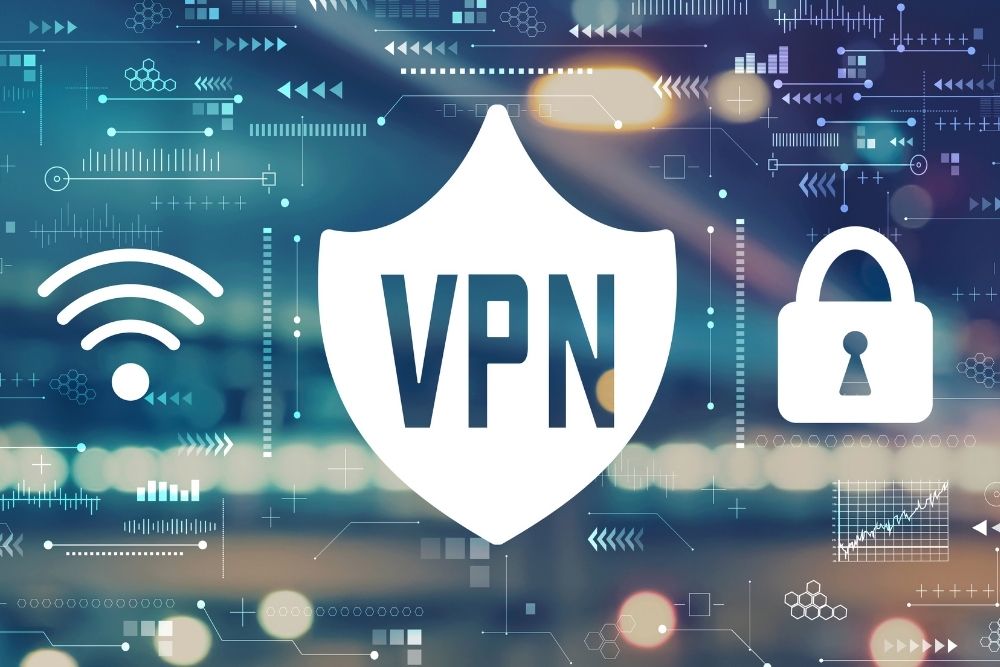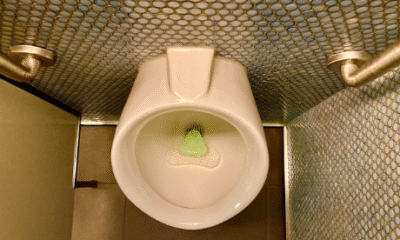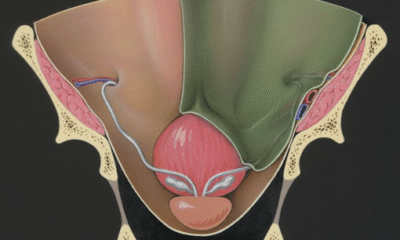Technology
What Is A VPN, And Why Would You Want One?
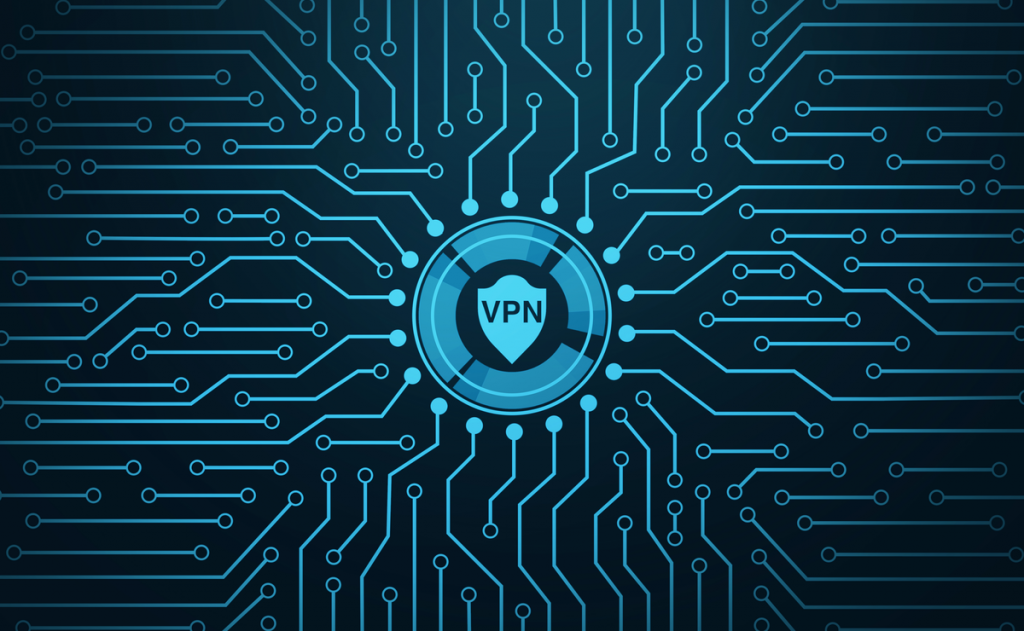
VPNs (Virtual Private Networks) are becoming increasingly popular and for good reason. They provide a number of benefits that make them a valuable tool in any online worker’s arsenal. In this blog post, we will explore what a VPN is, and why you might want to use one.
What is a VPN?
VPN stands for virtual private network and is a technology that allows users to access private networks, such as corporate networks, without being physically connected to the network. A VPN creates an encrypted tunnel between your computer and the VPN server, allowing you to browse the internet securely and anonymously.
There are many reasons why you might want to use a VPN. Perhaps you work for a company with restrictive firewall policies that prevent you from accessing certain sites or materials on the internet. Or maybe you live in a country with censorship laws that make it difficult to access certain websites. Using a VPN can help you bypass these restrictions so that you can continue to enjoy the freedom of online expression.
VPNs are not just for hardcore privacy enthusiasts; they’re also great tools for resolving connectivity issues. If your ISP is unable or unwilling to provide adequate speeds, using a virtual private network can help restore normalcy and increase your browsing experience. And if you travel frequently and find yourself outside of your home country, using a VPN can help protect your data from local spying eyes.
What are the benefits of using a VPN?
VPNs offer a number of benefits that can make your online experience more secure and comfortable. By encrypting your traffic and routing it through an intermediary server, a VPN can help protect your data from prying eyes and malware. And because VPNs are capable of hiding your true IP address, they can also help you bypass censorship restrictions and access content that is otherwise unavailable in your region.
VPNs are also beneficial for users who frequently travel or work outside of their home country. By connecting to a local VPN server, you can keep your device connected while you’re away from home, preventing anyone from snooping on your online activity. And if you need to connect to a remote office network while overseas, a VPN can provide an easy way to do so.
Overall, there are many reasons why using avirtual private network is advantageous. By encrypting your traffic and ensuring the safety of your data, a VPN can improve your online security and privacy. Additionally, by accessing blocked content or local networks abroad, a VPN can help you stay connected while on the go. So whether you’re looking to enhance your privacy or security online, a VPN is an essential tool for success.
How to use a VPN
VPNs are virtual private networks, which are created by connecting a user’s computer to a remote server. This connection creates an encrypted tunnel between the user’s computer and the server, which means that all the data that goes in and out of your computer is securely protected.
When you use a VPN, all of your online activity is hidden from the government, your ISP, and anyone else who might be spying on you. Plus, using a VPN will protect your privacy since it keeps your browsing history and other personal information hidden.
There are plenty of reasons to use a VPN, but here are five of the most common:
To keep your browsing history and other personal information private when you’re connected to public WiFi hotspots To keep yourself anonymous while using certain websites (like YouTube or Facebook) Bypass region-locking on streaming services like Netflix To keep yourself safe when using public networks (like in airports or hotels)
If any of those reasons sound appealing to you, then you should definitely consider using a VPN. There are millions of users around the world who rely on VPNs every day to keep their privacy safe and secure.
Conclusion
VPNs are a great way to protect your privacy and keep your internet activity safe. By using a VPN, you can hide your real IP address from websites and other users online. This can help prevent others from knowing what sites you are visiting, tracking your movements online, and more. Additionally, by using a VPN, you can encrypt all of your traffic so that even if someone were to intercept the data as it travels through the air, they would not be able to read it. If this sounds like something you would want to use on a regular basis, check out our list of the best VPNs for 2019.
Technology
Effective Squirrel Removal Techniques: A Comprehensive Guide

Squirrels might look adorable in the park or on a tree branch, but when they invade attics, crawlspaces, or walls, they quickly turn from cute to chaotic. These agile and curious rodents can cause serious damage to a home’s structure, chew through electrical wiring, and create noisy disruptions—especially during the early morning hours. Learning how to remove squirrels effectively—and humanely—is crucial for homeowners looking to maintain peace and prevent further property damage.
This blog outlines proven squirrel removal techniques, prevention methods, and professional options that can help you regain control of your space.
Understanding Squirrel Behavior
Before implementing any removal strategy, it’s important to understand squirrel behavior. Squirrels are diurnal creatures, meaning they are most active during the day—especially at dawn and dusk. They build nests (called “dreys”) in tree cavities or high places, and homes offer ideal nesting environments due to warmth, shelter, and access to food.
Common entry points include:
- Roof vents
- Chimneys
- Gable vents
- Loose or missing shingles
- Cracks or holes in soffits and fascia
Females will often look for safe, quiet spaces to raise their young, and attics provide a perfect sanctuary. Therefore, removing a squirrel might also involve dealing with a nest of babies.
Signs of a Squirrel Infestation
Not sure if squirrels have moved into your home? Look for these telltale signs:
- Scratching or scampering sounds in the ceiling or walls
- Droppings in the attic or around entry points
- Chewed wires, wood, or insulation
- Nesting material such as leaves, twigs, or shredded insulation
- Visual sightings of squirrels entering or exiting your roof area
Identifying these signs early is critical to preventing long-term damage.
1. Inspection and Identification
The first step in effective squirrel removal is a thorough inspection. Walk around the perimeter of your home and check your attic or crawlspace for entry points and signs of activity. Binoculars can help inspet rooflines and eaves without needing a ladder.
Determine:
- How the squirrels are getting in
- Whether there are babies present
- If other animals (like raccoons or birds) are sharing the space
Accurate identification ensures you don’t waste time using the wrong removal strategy or miss important nesting sites.
2. Seal Entry Points—But Not Too Soon
Once you’ve identified how squirrels are entering, you’ll want to seal those gaps. However, do not seal the holes while squirrels are still inside, or you risk trapping them, which can lead to more damage—or worse, death and odor issues.
Instead, wait until you’re sure the squirrels have left. To ensure this:
- Use flour or talcum powder near the suspected exit to check for footprints.
- Place a crumpled newspaper in the hole. If it’s still undisturbed after a couple of days, it’s likely safe to seal.
- Observe activity patterns and wait until the squirrels have exited for the day.
Use heavy-duty materials like galvanized steel mesh or metal flashing to seal holes. Avoid foam or wood, which squirrels can easily chew through.
3. Use One-Way Exclusion Devices
One of the most effective and humane squirrel removal methods is a one-way exclusion door. This device allows squirrels to leave through the opening but prevents them from re-entering.
Steps:
- Install the exclusion device on the main entry point.
- Monitor for signs that all squirrels have exited.
- Once activity stops, remove the exclusion device and permanently seal the opening.
This method works best when the nest does not contain babies. If baby squirrels are present, they must be removed by hand or wait until they are old enough to follow the mother out.
4. Live Trapping (With Caution)
Live traps can be effective when exclusion is not an option. These cage-style traps are baited with peanut butter, sunflower seeds, or nuts. Place them near entry points or on squirrel trails.
Tips for humane trapping:
- Check traps frequently—at least every few hours.
- Wear gloves when handling traps.
- Release squirrels at least 5–10 miles away in an area with adequate cover and no nearby homes.
Note: Trapping regulations vary by region. Always check local laws regarding trapping and relocation of wildlife.
5. Eviction Techniques for Mothers and Babies
If a mother squirrel has created a nest in your attic, removal becomes more sensitive. Forcing her out while leaving babies behind will almost always result in her returning—often destructively—to retrieve them.
Humane options include:
- Waiting 6–8 weeks until the babies are old enough to leave on their own.
- Encouraging eviction using gentle deterrents like bright lights, loud music, or commercial squirrel repellents.
In some cases, professionals may remove the babies and place them in a heated reunion box just outside the entry point, where the mother can relocate them naturally.
6. Scent and Sound Deterrents
While not a complete solution, deterrents can support removal efforts or discourage re-entry:
- Sound deterrents like radios or ultrasonic devices may make the area less appealing.
- Scent repellents (predator urine, ammonia-soaked rags) might encourage squirrels to leave, especially when used with other techniques.
Keep in mind that these methods are more effective as part of a broader removal strategy and are unlikely to work on their own for established infestations.
7. Long-Term Prevention
Once the squirrels are gone, take preventive steps to keep them from coming back:
- Trim trees and branches at least 8–10 feet away from the house.
- Install chimney caps and secure vents with heavy-duty screening.
- Inspect your home seasonally for new gaps or damage.
- Keep food sources like bird feeders and open trash away from your home.
Regular maintenance is key to ensuring your home remains squirrel-free.
8. When to Call the Professionals
Squirrel removal is often more complex than it seems, especially when babies are involved or the infestation is widespread. Professionals are trained to remove wildlife humanely and ensure all points of entry are sealed properly.
An expert team offering humane and effective solutions is available through squirrels removal by Swat Wildlife. They combine removal with prevention, ensuring that once the squirrels are gone, they stay gone.
Conclusion
Squirrels in your attic or walls aren’t just a nuisance—they pose real risks to your home’s structure and safety. Acting quickly and using proven, humane techniques will help protect your home and restore your peace of mind. Whether you’re inspecting, sealing, trapping, or deterring, a systematic approach will lead to success.
And remember, if the job gets too complicated—or if you’re unsure how to handle babies or persistent intrusions—don’t hesitate to bring in professionals. The goal is always the same: safe, effective, and lasting squirrel removal.
Technology
How To Install a Toilet Flange in 8 Steps

A toilet flange—also known as a closet flange—is a vital plumbing component that connects your toilet to the waste pipe and secures it to the floor. Without a properly installed flange, your toilet may wobble, leak, or allow sewer gases into your home. Fortunately, installing a toilet flange is a manageable DIY task with the right tools and guidance.
Whether you’re replacing an old flange or installing a new one during a bathroom renovation, this step-by-step guide will walk you through the process. Read on to learn how to install a toilet flange in 8 simple steps.
Tools and Materials You’ll Need
Before you start, make sure you have the following:
- New toilet flange (PVC or metal, depending on your plumbing)
- Toilet flange repair ring (optional if you’re fixing a damaged flange)
- Wax ring or wax-free toilet seal
- Screws or bolts (usually included with the flange)
- Screwdriver or power drill
- Adjustable wrench
- Putty knife
- Measuring tape
- PVC cement (if you’re using a PVC flange)
- Gloves and safety glasses
Step 1: Turn Off Water Supply and Remove the Toilet
Before doing anything, shut off the water supply to your toilet. Locate the shutoff valve behind or near the base of the toilet and turn it clockwise. Flush the toilet to drain water from the tank and bowl. Use a sponge or towel to soak up any remaining water in the bowl or tank.
Next, disconnect the water supply line from the bottom of the tank. Use an adjustable wrench to loosen the nuts. Once disconnected, remove the caps on the base of the toilet and unscrew the bolts holding it to the floor. Carefully lift the toilet and set it aside on a towel or old blanket.
Step 2: Remove the Old Toilet Flange
With the toilet out of the way, you’ll have clear access to the old flange. Use a putty knife to scrape away any wax ring residue. Examine the flange to determine whether it’s damaged or rusted.
To remove the old flange:
- Unscrew the bolts securing it to the floor.
- If it’s glued to the drainpipe, use a chisel or pry bar to break it loose.
- For PVC flanges, you may need to cut the pipe and install a coupling for the new flange.
Proper removal is crucial to ensuring a tight, leak-free fit when installing the new flange.
Step 3: Inspect and Prepare the Drain Pipe
Check the condition of the waste pipe underneath the old flange. Make sure it’s free from cracks, debris, or obstructions. Use a flashlight to inspect inside the pipe for any buildup or blockage.
If the pipe is in good condition and sits slightly below the finished floor, you’re ready to install the new flange. Otherwise, you may need to make pipe height adjustments or install an extender ring if the flange sits too low.
Step 4: Choose the Right Flange for Your Plumbing
Toilet flanges come in a variety of materials, such as PVC, ABS, and stainless steel. Select a flange that matches your existing drainpipe material.
There are also different styles:
- Standard flange: Fits inside or over the drain pipe
- Offset flange: Ideal for shifting the toilet’s position slightly
- Repair flange: Used to cover damaged or corroded flanges
If you’re unsure which flange suits your setup, consult a professional plumber or check resources like https://www.thegreatplumbingco.com/, which offer helpful guidance and installation services.
Step 5: Install the New Toilet Flange
Place the new flange into or over the drainpipe to ensure a snug fit. The flange’s collar should sit flush and level with the finished floor. If it’s too high or too low, you may need a flange extender or to trim the pipe.
Once aligned:
- Apply PVC cement to the flange and pipe (if required) and press them together
- Rotate slightly to spread the adhesive
- Let it sit for a few minutes until the cement bonds
Make sure the flange’s bolt slots are aligned parallel to the wall behind the toilet. This ensures your toilet bolts will be positioned correctly for installation.
Step 6: Secure the Flange to the Floor
Use screws or bolts to fasten the flange to the floor. The flange must be anchored securely to prevent rocking or movement of the toilet.
Tips:
- If you’re drilling into concrete, use a masonry bit and concrete anchors
- For wood subfloors, standard wood screws work well
- Tighten screws evenly to avoid warping or cracking the flange
Once secured, insert the toilet bolts into the flange slots. These bolts will anchor the toilet to the flange later in the process.
Step 7: Install the Wax Ring or Seal
A wax ring provides an airtight and watertight seal between the toilet and the flange. Place the ring on the flange or underside of the toilet outlet.
You can also opt for a wax-free seal, which offers a cleaner, reusable option. These are often easier to work with, especially for first-time DIYers.
Make sure the ring is centered and securely placed—misalignment can cause leaks once the toilet is seated.
Step 8: Reinstall the Toilet
With the wax ring in place and the bolts ready, lift the toilet and carefully lower it over the flange, aligning the holes with the bolts. Press down firmly to compress the wax ring and create a seal.
Once aligned:
- Add washers and nuts to the bolts
- Tighten the nuts gradually, alternating sides to keep pressure even
- Avoid overtightening to prevent cracking the porcelain
Reattach the water supply line and turn the shutoff valve counterclockwise to restore water flow. Flush the toilet a few times to check for leaks.
Finish by replacing the bolt caps at the toilet base and cleaning up any excess wax or debris.
Bonus Tips for a Successful Installation
- Always double-check that your flange is level with the finished floor
- Use a flange spacer if your new flooring raised the floor height
- If you’re uncomfortable with plumbing tools or unsure of your setup, hiring a professional can save time and frustration
Conclusion
Installing a toilet flange may seem like a small job, but it’s crucial to your bathroom’s plumbing integrity. With a few tools, a bit of patience, and a clear step-by-step plan, you can confidently complete the task and ensure a stable, leak-free toilet.
If your project turns out to be more complicated—like dealing with damaged pipes, concrete subfloors, or unusual plumbing configurations—don’t hesitate to seek professional help. Resources like The Great Plumbing offer trusted plumbing services and expert advice to handle even the most challenging installations.
By following these 8 steps, you’ll ensure your toilet is securely mounted and your bathroom remains clean, sanitary, and worry-free.
Technology
The Strategic Value of Technical Translations in Industrial and Tech Sectors

In today’s global industrial economy, companies are no longer confined by borders. Canadian manufacturers, engineering firms, and technology companies regularly export products, collaborate with international partners, and comply with diverse regulatory frameworks. In this complex environment, technical translation plays a strategic role, far beyond simple language conversion.
Whether you’re shipping a new device to Germany, coordinating production with a facility in Mexico, or submitting documentation to a regulatory body, the quality and accuracy of your translated materials can directly affect your market access, reputation, and bottom line.
Technical Documents Are Core Assets, Not Just Support Material
When we think of business-critical content, we often imagine contracts, financial reports, or marketing materials. But in industrial and tech sectors, technical documentation is just as vital — and often more so.
Examples include:
- Equipment manuals and user guides
- Product specifications and data sheets
- Engineering drawings and technical reports
- Installation procedures and safety instructions
- Embedded software interfaces and system alerts
These documents are not peripheral. They enable compliance, ensure safety, guide usage, and support technical operations. A mistranslated diagram label, measurement, or safety warning can lead to delays, legal exposure, or even harm.
Where Translation Impacts the Business: 4 Strategic Areas
Technical translation is not just about communicating — it’s about ensuring operational integrity. Here are four key areas where professional translation has strategic value.
1. Regulatory Compliance
Each target market has its laws, certifications, and language requirements. For example:
- The European Union requires documentation in the local language for CE marking.
- The U.S. Food and Drug Administration (FDA) may demand multilingual labelling.
- Canadian and international standards (e.g., CSA, ISO) often require official translations for audits or certification.
Non-compliance — even due to a translation error — can result in fines, product recalls, or blocked market access.
2. Product Liability and Safety
Improper translations of safety instructions or operational procedures can have serious consequences. If a machine is misused due to a vague or inaccurate translation, the manufacturer may be held legally responsible.
In sectors such as aerospace, energy, medical devices, or construction, technical document translation must be flawless, because lives may depend on it.
3. Engineering Efficiency and Global Collaboration
Many Canadian engineering projects involve international partners, suppliers, or subcontractors. When blueprints, reports, or technical specifications are misinterpreted due to language barriers, the result can be costly errors, rework, or missed deadlines.
Clear, consistent multilingual documentation allows cross-border teams to stay aligned and productive.
4. Global Market Penetration
Exporting high-tech products or industrial solutions requires more than a sales pitch. Bidders must often submit translated tender documents, product manuals, or compliance records. Distributors need localized support materials.
Professional technical document translation ensures your message — and your product — are understood and trusted by stakeholders around the world.
Why General Translation Isn’t Enough for Technical Content
Unlike general business communication, technical documents are packed with industry-specific terminology, formulas, abbreviations, and structural conventions. Misinterpreting a unit of measurement or translating a term too literally can drastically change meaning or render a document unusable.
Effective technical translation requires:
- Bilingual subject-matter expertise
- Consistency in terminology via translation memories and glossaries
- Attention to layout and formatting, especially for engineering drawings or tables
- Familiarity with regional standards (e.g., metric vs. imperial systems, voltages, part naming conventions)
In short: technical translation is a discipline, not a task.
How to Choose the Right Partner for Technical Translation
To minimize risk and maximize clarity, industrial and tech companies should work with partners who:
- Employ translators with engineering or scientific backgrounds
- Use CAT tools (computer-assisted translation) to ensure consistency across projects
- Offer multilingual desktop publishing (DTP) for complex document formats
- Can provide certified translations where legally required
- Understand your specific industry and markets
The right translation partner will not only deliver accurate content, but they’ll also help your business operate confidently across borders.
Conclusion
In industrial and tech sectors, technical documentation is at the heart of global operations. Its clarity, accuracy, and compliance determine how safely and successfully a company functions beyond its domestic market.
When companies view technical translation as a strategic investment — rather than a last-minute task — they gain more than just linguistic accuracy. They protect their brand, accelerate international growth, reduce operational risk, and demonstrate commitment to excellence.
Because in a world where one wrong word can halt production or void compliance, the right translation is not optional — it’s essential.
-

 Travel3 years ago
Travel3 years agoNEW ZEALAND VISA FOR ISRAELI AND NORWEGIAN CITIZENS
-

 Technology3 years ago
Technology3 years agoIs Camegle Legit Or A Scam?
-

 Uncategorized3 years ago
Uncategorized3 years agoAMERICAN VISA FOR NORWEGIAN AND JAPANESE CITIZENS
-

 Health3 years ago
Health3 years agoHealth Benefits Of Watermelon
-

 Home Improvement5 months ago
Home Improvement5 months agoArtificial Grass Designs: Perfect Solutions for Urban Backyards
-

 Fashion2 years ago
Fashion2 years agoBest Essentials Hoodies For Cold Weather
-
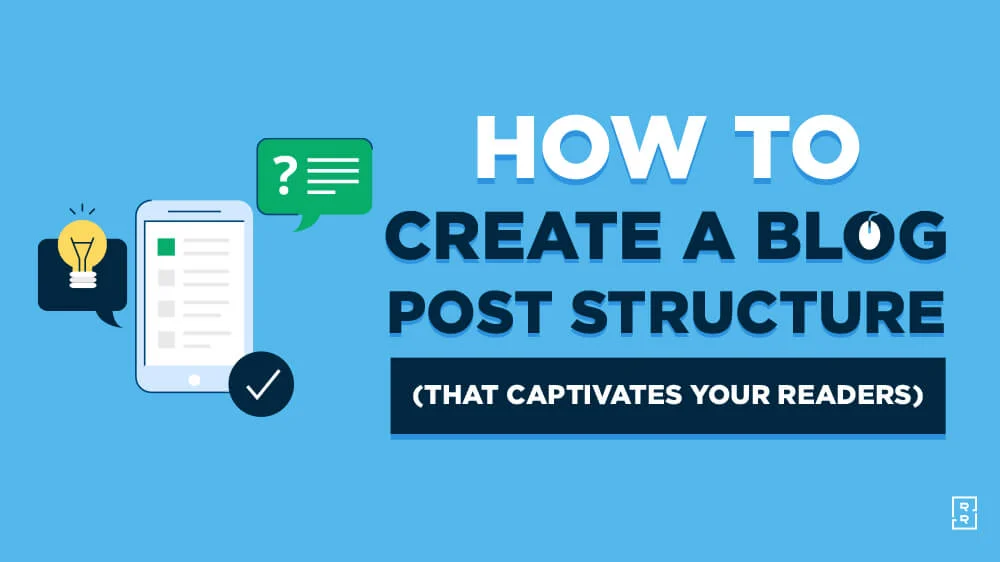
 Uncategorized3 years ago
Uncategorized3 years agoHow can I write a well-structured blog post?
-
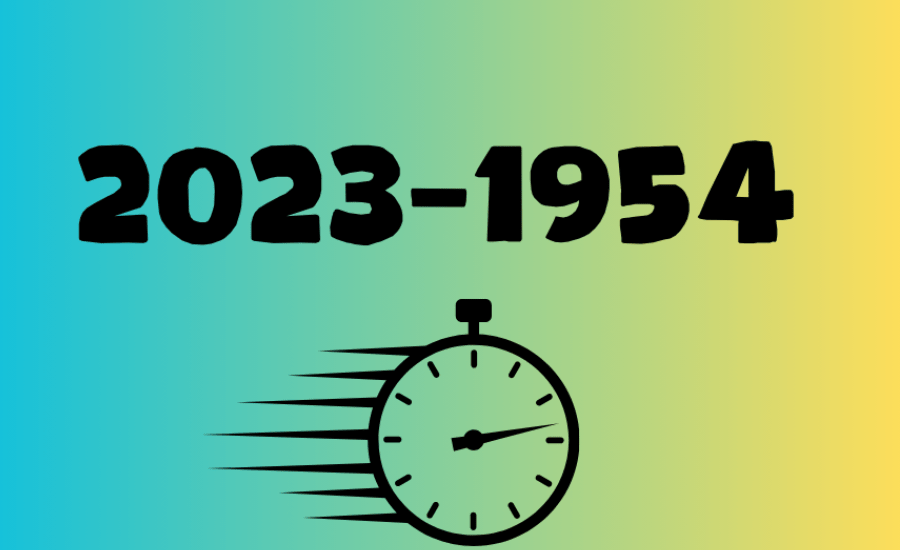
 Technology1 year ago
Technology1 year agoImagine a World Transformed by Technology and Innovation of 2023-1954

